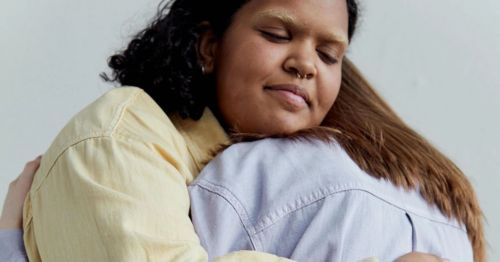
Table of Contents
What Does It Mean to Be Gender Apathetic?

Written By: Alex Bachert, MPH

Clinically Reviewed By: Dr. Don Gasparini
September 20, 2023
5 min.
People who identify as gender apathetic are indifferent about their own gender identity or how others perceive their gender identity. Charle Health shares more about gender apathy and how it compares to other gender identities.
Learn more about our Clinical Review Process
Table of Contents
What does it mean to be gender apathetic?
Gender apathy refers to an individual’s indifference toward their own gender identity or the idea of gender identity in general. But before diving further into what it means to be gender apathetic, it’s important to understand the concept of gender identity.
Gender identity is an individual’s personal sense of their own gender. It reflects how people feel on the inside, as well as how they express themselves through their appearance, behaviors, clothes, and pronouns. While some people identify with the gender that matches the sex they were assigned at birth, others do not.
There are various gender identities, including nonbinary, an umbrella term referring to people who do not exclusively identify as male or female. Even within the nonbinary umbrella, a person may choose various terms to describe their gender identity, such as gender apathetic.
Gender apathetic, or apagender, individuals don’t strongly connect with any particular gender label. In fact, they are indifferent toward their gender identity and may not even care about what gender they come across as to others.

Gender apathy and pronouns
As mentioned, one way people express their gender can be their pronouns. Since many gender apathetic folks prefer not to be labeled as one particular gender, they may use gender-neutral pronouns (like they/them/theirs) or a combination of other pronouns. As with people of all genders, you can’t know someone’s pronouns without asking them directly.
Here are some common pronouns used by individuals who identify as gender apathetic:
- She/her/hers
- He/him/his
- They/them/theirs
- Ze/hir/hirs
- Xe/xem/xyr
- Ve/ver/vis

Do you or someone you love need LGBTQIA+-affirming therapy?
Charlie Health’s intensive therapy program creates customized treatment plans for LGBTQIA+ young adults
How to know if you’re gender apathetic
As mentioned, people who are gender apathetic are indifferent about identifying as male, female, or any other gender category. They don’t feel compelled to conform to traditional gender expectations and are comfortable with ambiguity about their gender identity. If you or someone you know feels this way, it may be a sign that you’re gender apathetic.
Still not sure if you or someone you know is gender apathetic? Here are some important questions to consider:
- Is gender an important part of your identity?
- How do you express your gender?
- Do you identify with the gender you were assigned at birth?
- Do you identify with a different gender? If not, do you identify with some aspects of certain genders?
- What are your pronouns? Do they change?
- Does it bother you if someone misgenders you?
- What does gender mean to you?
Gender apathetic versus other gender identities
Gender is an extremely personal aspect of someone’s identity, and there is no right or wrong expression of gender. If gender apathetic doesn’t seem like it applies to you, consider learning more about other nonbinary gender identities, such as agender, genderfluid, and genderqueer. Here’s an explanation of each three:
Gender apathetic
Agender
Genderfluid
Genderqueer
People who lack a strong connection to any specific gender label and often display indifference towards their gender identity or how others perceive their gender.
People who do not identify with any gender.
People whose gender identity may change over time between different genders on the gender spectrum.
People who reject or challenge traditional binary notions of gender and may identify as a combination of genders or as neither exclusively male nor female.
Agender
Agender people do not identify with any gender. The primary difference between gender apathetic and agender is the word apathy. While gender apathetic people choose not to identify with any particular gender, agender individuals cannot identify with any particular gender.
Genderfluid
Genderfluid individuals have a gender identity that may change over time. Their gender identity is not fixed and can fluctuate between different genders along the gender spectrum. A key difference between genderfluid and gender apathetic people lies in the emotional attachment to gender. Gender apathetic people do not strongly identify with any gender and may feel indifferent to gender, while genderfluid people experience shifts in their gender identity and may actively explore and express various gender identities.
Genderqueer
Genderqueer individuals reject or challenge traditional binary notions of gender. They may identify as a combination of genders or as neither exclusively male nor female. Similar to the difference between genderfluid and gender apathetic people, genderqueer people may actively explore and express their gender identity in ways that challenge binary gender norms whereas gender apathetic people are not attached to any gender identity.

Supporting LGBTQIA+ Mental Health This Pride Month (and All Months)
Charlie Health Editorial Team
Gender identity and mental health
Research shows that transgender and nonbinary youth are more likely to experience depressive symptoms, seriously consider suicide, and attempt suicide than their cisgender lesbian, gay, bisexual, queer, and questioning peers. Plus, their gender presentation may put them at increased risk for bullying and discrimination, which can cause anxiety, depressive symptoms, and feelings of isolation.
If you’re feeling confused about your gender identity or have questions about gender presentation, it can be helpful to speak with a mental health professional who has experience working with gender apathetic people. Accessing therapy can be a great way to develop the coping skills to manage tough conversations and prioritize your mental and emotional well-being.
There are also plenty of educational resources for gender apathetic people. Whether you’re looking for additional information for yourself or are interested in being a better ally and friend, here are a few good places to start that specifically offer mental healthcare to LGBTQIA+ people, including those who identify as gender apathetic:
- The Trevor Project: Call 866-488-7386 or text ‘START’ to 678-678
- The GLBT National Youth Talkline: Call 800-246-7743
- The True Colors United: Call 212-461-4401
LGBTQIA+ mental healthcare with Charlie Health
Charlie Health is committed to serving people of all genders and sexual orientations in a safe, compassionate, and empowering environment. If you’re a gender apathetic or LGBTQIA+ young person struggling with your mental health, Charlie Health is here to help.
Charlie Health offers more than once-weekly mental health treatment for adolescents, young adults, and their families. Our virtual Intensive Outpatient Program (IOP) combines individual therapy, group therapy, family therapy, and psychiatric support based on your unique background, preferences, and mental health needs. Our culturally competent mental health professionals are here to listen to your story, understand your needs, and match you with an appropriate treatment plan.
Fill out this short form to start your healing journey today.
References
https://www.plannedparenthood.org/learn/gender-identity/sex-gender-identity
https://glaad.org/reference/terms
https://transequality.org/issues/resources/frequently-asked-questions-about-transgender-people
https://www.thetrevorproject.org/resources/article/understanding-gender-identities/
https://www.genderspectrum.org/resources
https://news.gallup.com/poll/329708/lgbt-identification-rises-latest-estimate.aspx
https://www.jahonline.org/article/S1054-139X(19)30922-X/fulltext




